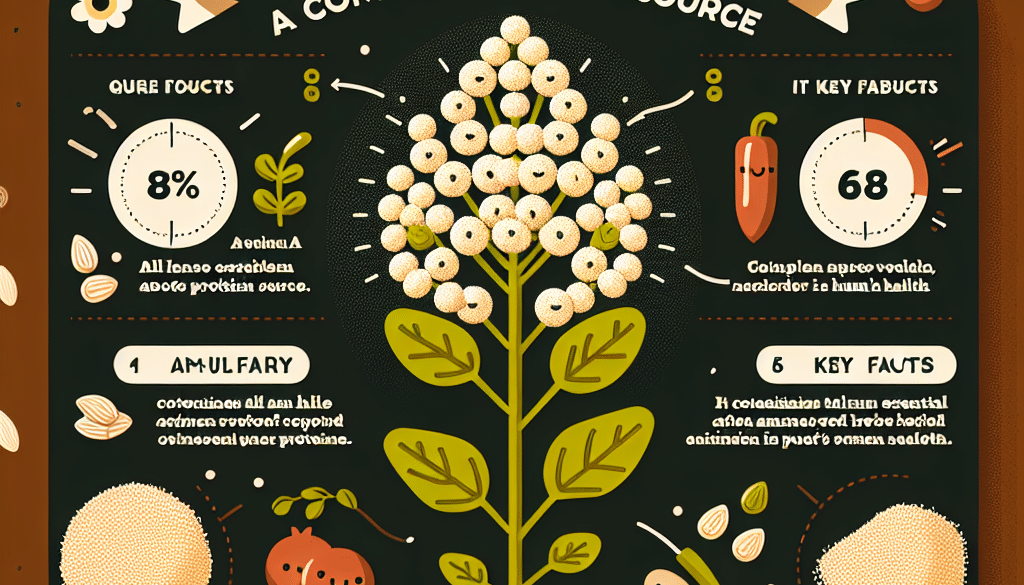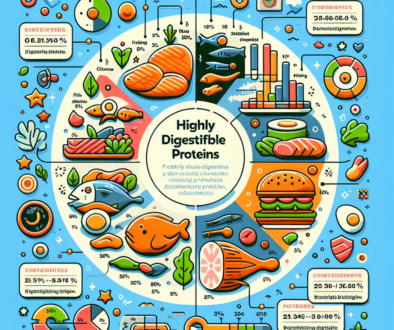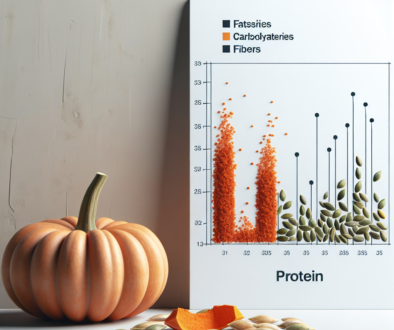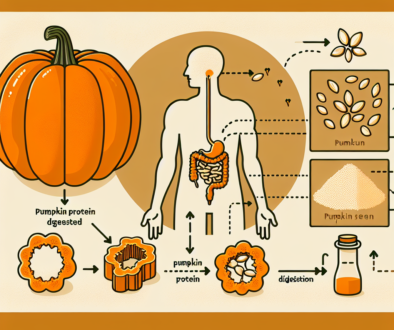What Vegetable Is A Complete Protein?
-
Table of Contents
- Complete Protein Vegetables: The Powerhouses of Plant-Based Nutrition
- Understanding Complete Proteins
- The Quest for Complete Proteins in Vegetables
- Complete Proteins in the Plant World
- Complementary Proteins: A Strategy for Vegetarians and Vegans
- Case Study: The Power of Plant-Based Diets
- Statistics: The Rise of Plant-Based Proteins
- Conclusion: Embracing Plant-Based Complete Proteins
- Discover ETprotein’s High-Quality Plant Proteins
Complete Protein Vegetables: The Powerhouses of Plant-Based Nutrition
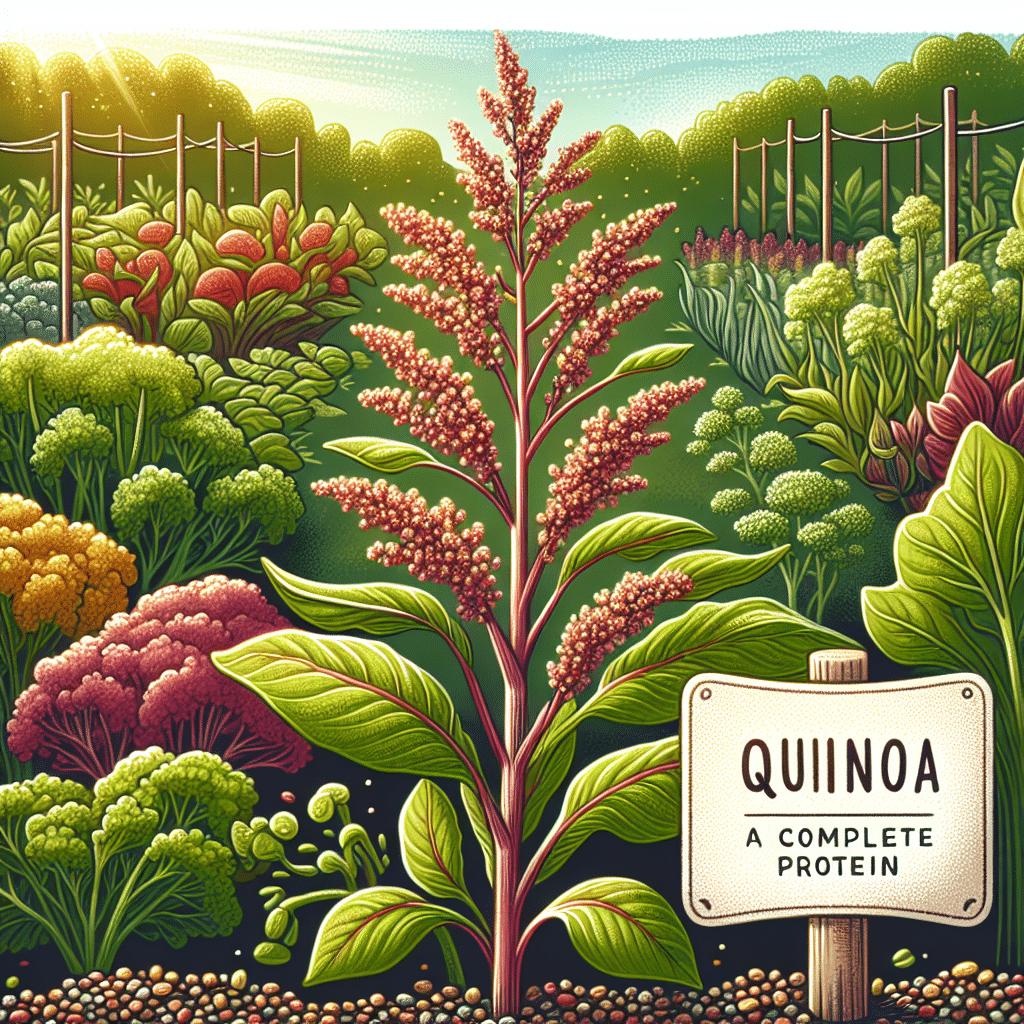
When it comes to protein, the common perception is that meat and animal products are the primary sources of this essential macronutrient. However, the plant kingdom also offers protein-rich options, some of which are complete proteins containing all nine essential amino acids that the human body cannot synthesize on its own. In this article, we will explore the concept of complete proteins and highlight a vegetable that stands out as a complete protein source.
Understanding Complete Proteins
Proteins are made up of amino acids, which are often referred to as the building blocks of life. There are twenty different amino acids that combine in various ways to create different proteins. Of these, nine are considered essential because our bodies cannot produce them, and they must be obtained through our diet. A complete protein is one that contains an adequate proportion of all nine essential amino acids.
The Quest for Complete Proteins in Vegetables
Most plant-based proteins are considered incomplete because they lack one or more of the essential amino acids. However, there are exceptions to this rule. The quest for complete proteins within the realm of vegetables is a challenging one, as true vegetables (excluding legumes and grains, which are often lumped into the vegetable category) typically do not provide complete proteins. That said, when we expand our search to include the broader category of plant-based foods, we find some notable examples.
Complete Proteins in the Plant World
- Soybeans: Often considered a complete protein, soybeans and soy products like tofu and tempeh are among the few plant sources that contain all nine essential amino acids.
- Quinoa: Although technically a seed, quinoa is commonly referred to as a whole grain and is another plant-based complete protein.
- Buckwheat: Also a seed, buckwheat is a complete protein that can be consumed as groats or in flour form.
- Hemp Seeds: These seeds are a great source of complete protein and can be easily added to a variety of dishes.
- Chia Seeds: Chia seeds are not only high in fiber and omega-3 fatty acids but also contain all nine essential amino acids.
- Spirulina: This blue-green algae is a powerhouse of nutrients, including being a complete protein.
While these examples are not vegetables in the traditional sense, they are important components of a plant-based diet that can provide complete proteins.
Complementary Proteins: A Strategy for Vegetarians and Vegans
For those who rely on true vegetables for their dietary needs, the concept of complementary proteins is crucial. By combining different plant-based foods that are individually incomplete proteins, one can create a meal that provides all essential amino acids. For example, rice and beans eaten together form a complete protein because the amino acids missing from rice are present in beans, and vice versa.
Case Study: The Power of Plant-Based Diets
Research has shown that plant-based diets can be nutritionally sufficient when carefully planned. A study published in the American Journal of Clinical Nutrition found that vegetarian and vegan diets, which rely heavily on plant-based proteins, can meet protein requirements when a variety of plant foods are consumed and energy needs are met.
Statistics: The Rise of Plant-Based Proteins
The demand for plant-based proteins is on the rise. According to a report by MarketsandMarkets, the global plant-based protein market is projected to grow from USD 10.3 billion in 2020 to USD 14.5 billion by 2025. This growth is driven by increasing health consciousness, dietary restrictions, and environmental concerns associated with animal protein production.
Conclusion: Embracing Plant-Based Complete Proteins
In conclusion, while true vegetables may not be complete proteins on their own, the plant kingdom offers a variety of sources that can either provide all essential amino acids or can be combined to create a complete protein profile. By incorporating a diverse range of plant-based foods into one’s diet, it is possible to meet all protein requirements in a healthy and sustainable way.
Discover ETprotein’s High-Quality Plant Proteins
If you’re looking to enhance your diet with high-quality plant proteins, ETprotein offers a range of products that cater to various needs. From organic rice protein to clear pea protein and beyond, their selection ensures that you can find the perfect plant-based protein for your dietary preferences. With a commitment to non-GMO, allergen-free ingredients, and high purity levels, ETprotein is an excellent choice for anyone seeking to incorporate complete plant-based proteins into their lifestyle.
About ETprotein:
ETprotein, a reputable protein and L-(+)-Ergothioneine (EGT) Chinese factory manufacturer and supplier, is renowned for producing, stocking, exporting, and delivering the highest quality organic bulk vegan proteins and L-(+)-Ergothioneine. They include Organic rice protein, clear rice protein, pea protein, clear pea protein, watermelon seed protein, pumpkin seed protein, sunflower seed protein, mung bean protein, peanut protein, and L-(+)-Ergothioneine EGT Pharmaceutical grade, L-(+)-Ergothioneine EGT food grade, L-(+)-Ergothioneine EGT cosmetic grade, L-(+)-Ergothioneine EGT reference grade and L-(+)-Ergothioneine EGT standard. Their offerings, characterized by a neutral taste, non-GMO, allergen-free attributes, with L-(+)-Ergothioneine purity over 98%, 99%, cater to a diverse range of industries. They serve nutraceutical, pharmaceutical, cosmeceutical, veterinary, as well as food and beverage finished product distributors, traders, and manufacturers across Europe, USA, Canada, Australia, Thailand, Japan, Korea, Brazil, and Chile, among others.
ETprotein specialization includes exporting and delivering tailor-made protein powder and finished nutritional supplements. Their extensive product range covers sectors like Food and Beverage, Sports Nutrition, Weight Management, Dietary Supplements, Health and Wellness Products, and Infant Formula, ensuring comprehensive solutions to meet all your protein needs.
As a trusted company by leading global food and beverage brands and Fortune 500 companies, ETprotein reinforces China’s reputation in the global arena. For more information or to sample their products, please contact them and email sales(at)ETprotein.com today.

